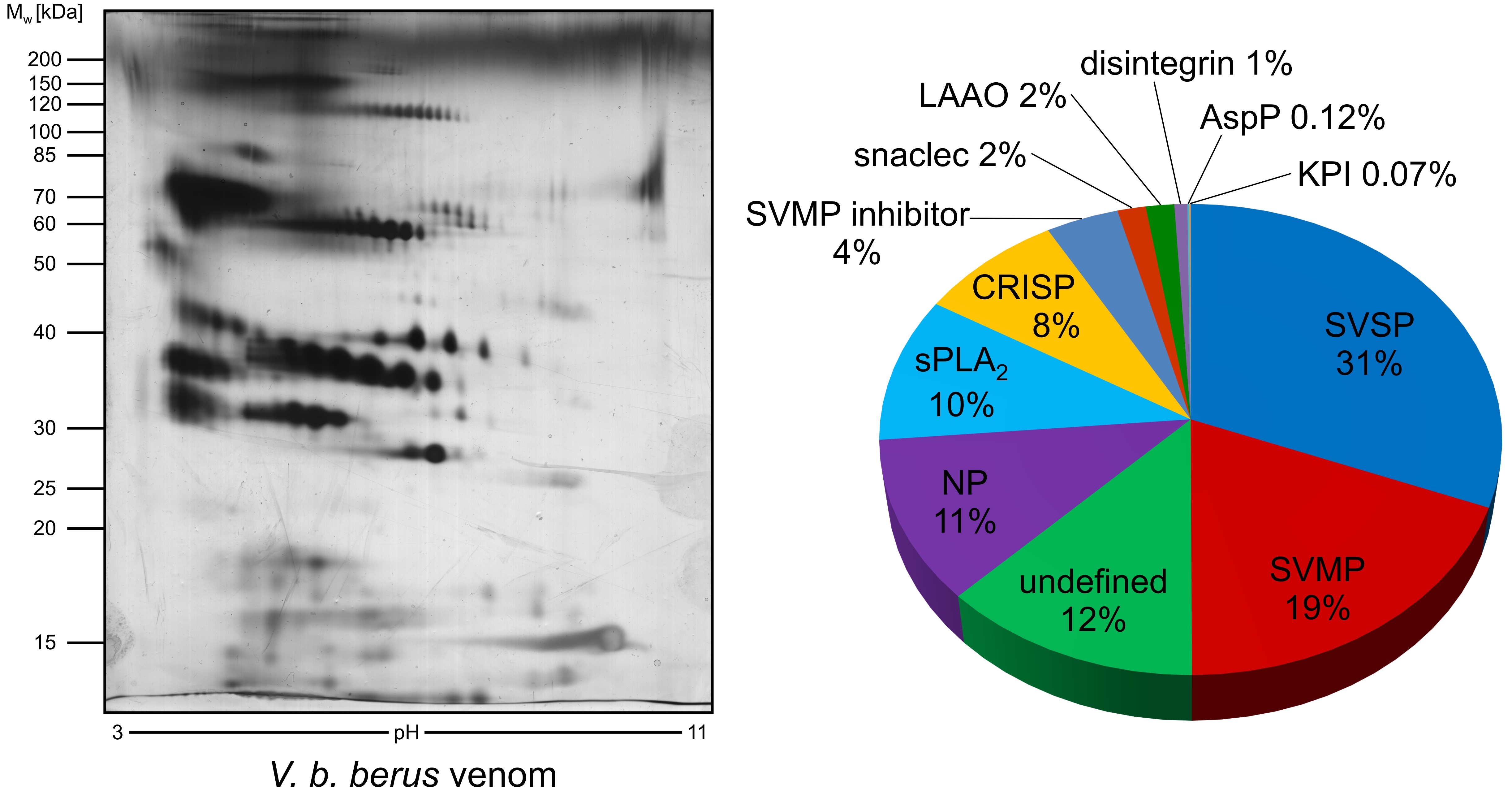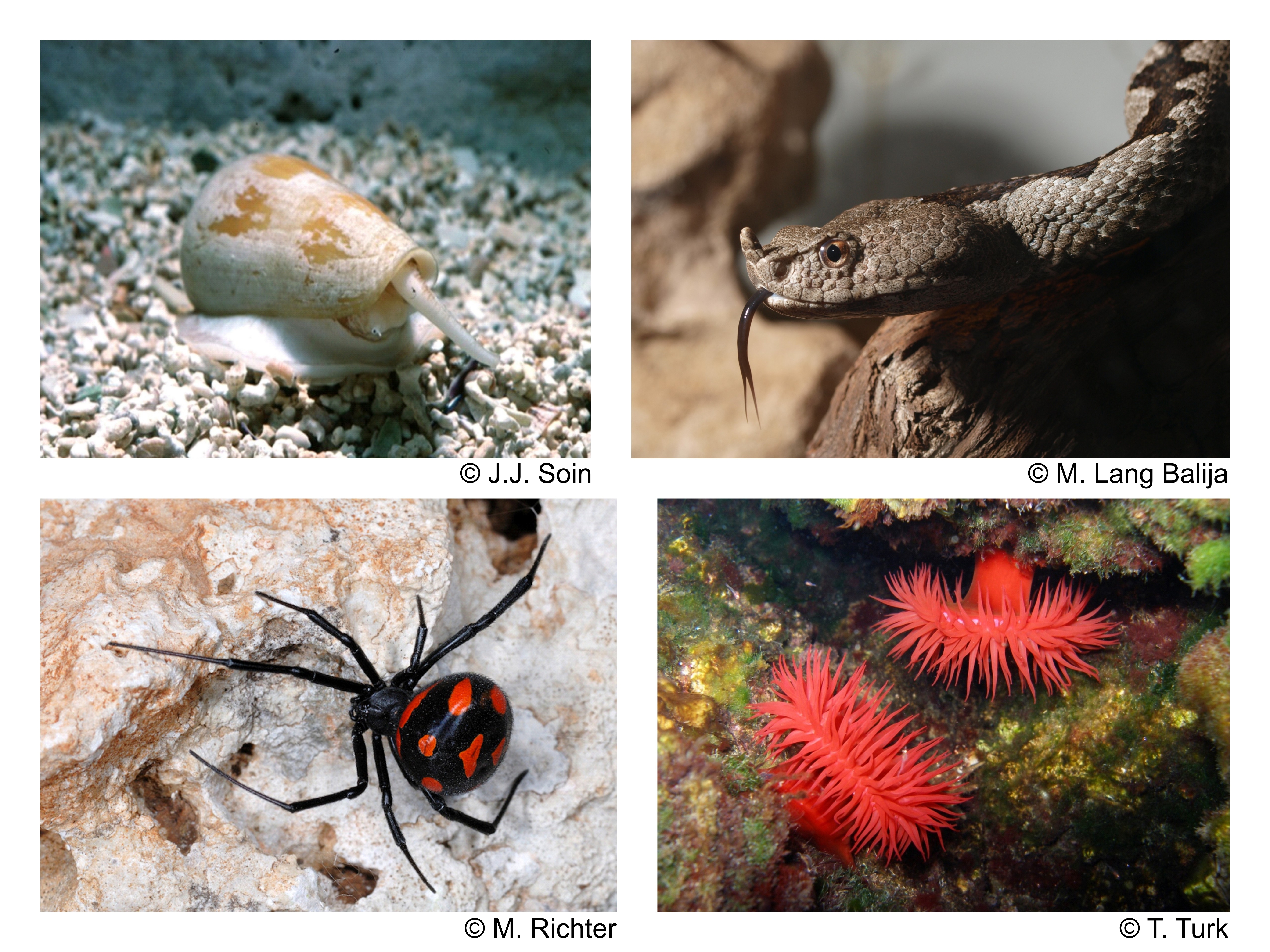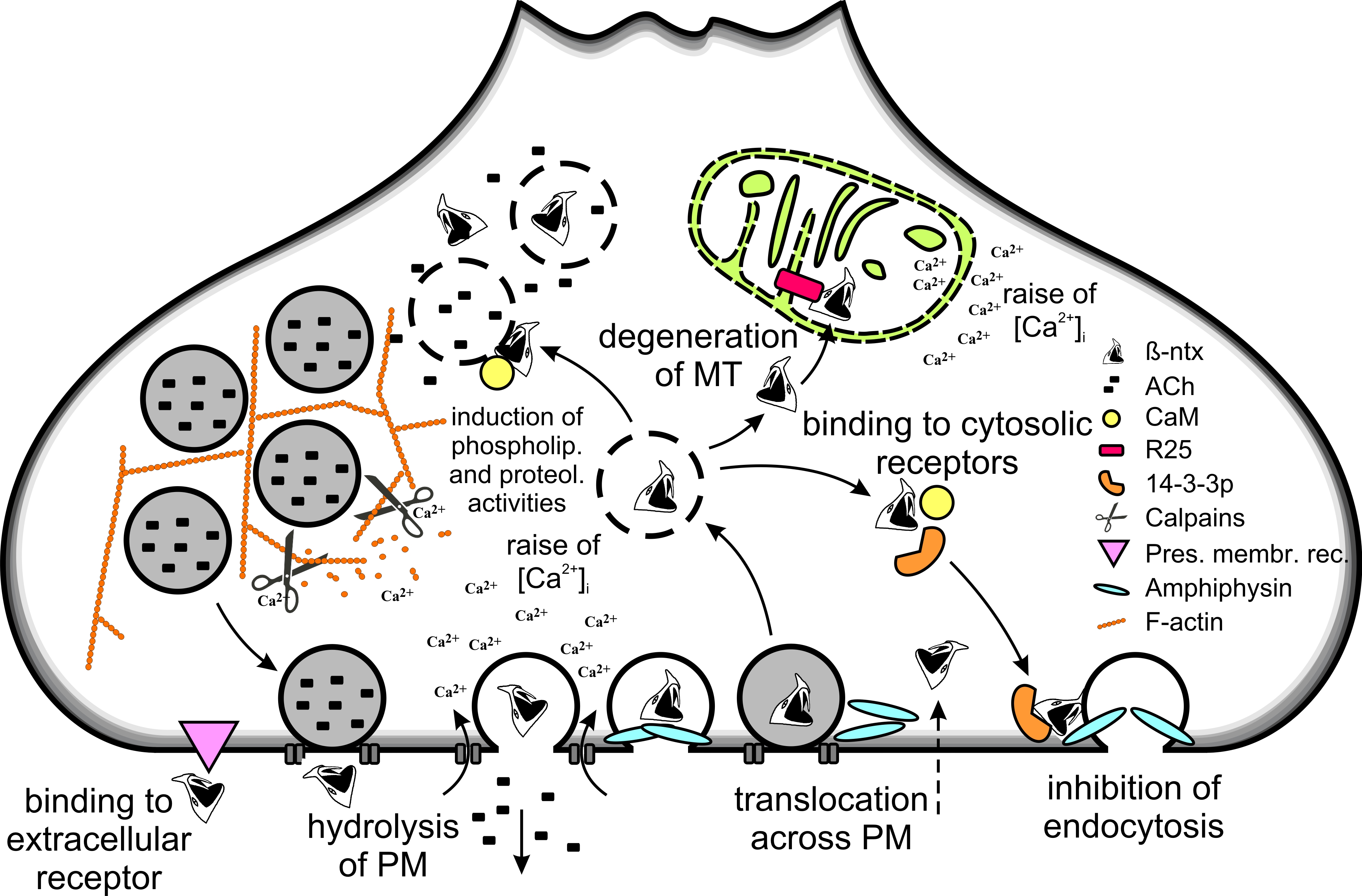Toxinology
Toxinology is the science of toxic substances produced by or accumulated in living organisms: microbes, plants and animals. We have been studying primarily venoms of snakes, sea anemones, cone snails, spiders and bees.
The venome is the sum of all natural venomous substances produced in the animal kingdom, which includes more than 100.000 venomous species. Each individual venom is a unique cocktail of often more than 100 different peptides and proteins, making the venome a source of over 10 million of peptides and proteins naturally tailored to act on a myriad of exogenous targets, such as ion channels, receptors and enzymes within cells and on the plasma membrane.
Increasing knowledge of the venome is favouring the development of improved protection against envenomations. Toxinology is, however, not solely concentrated on adverse effects of venoms. An increasing number of toxins are important as research tools, unlocking secrets of disease, or as diagnostic agents in hospital laboratories, or as therapeutic agents to treat human disease, including anti-cancer agents, anti-epileptic agents, anti-clotting agents, analgesics and anti-hypertensive drugs.
With only several 1.000 toxins being more or less characterized to date the venome represents a vast potential to discover new basic research tools, drug leads, approved drugs and diagnostic tools. We are looking for such substances targeting in particular the central and peripheral nervous systems, the cardiovascular system, blood coagulation and homeostasis.
⇒ Please contact Prof. Igor Križaj for more information.




